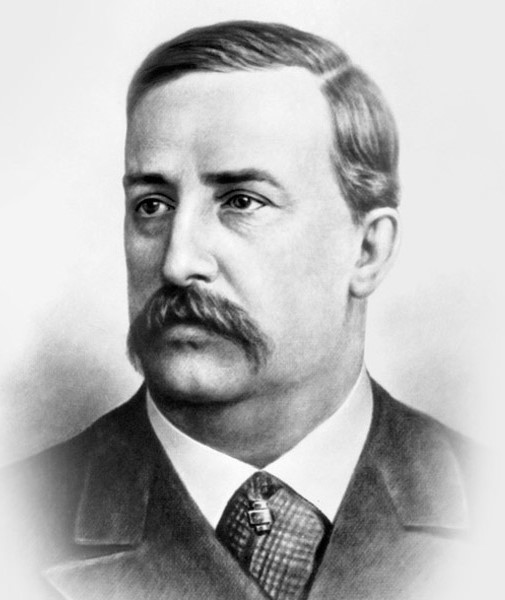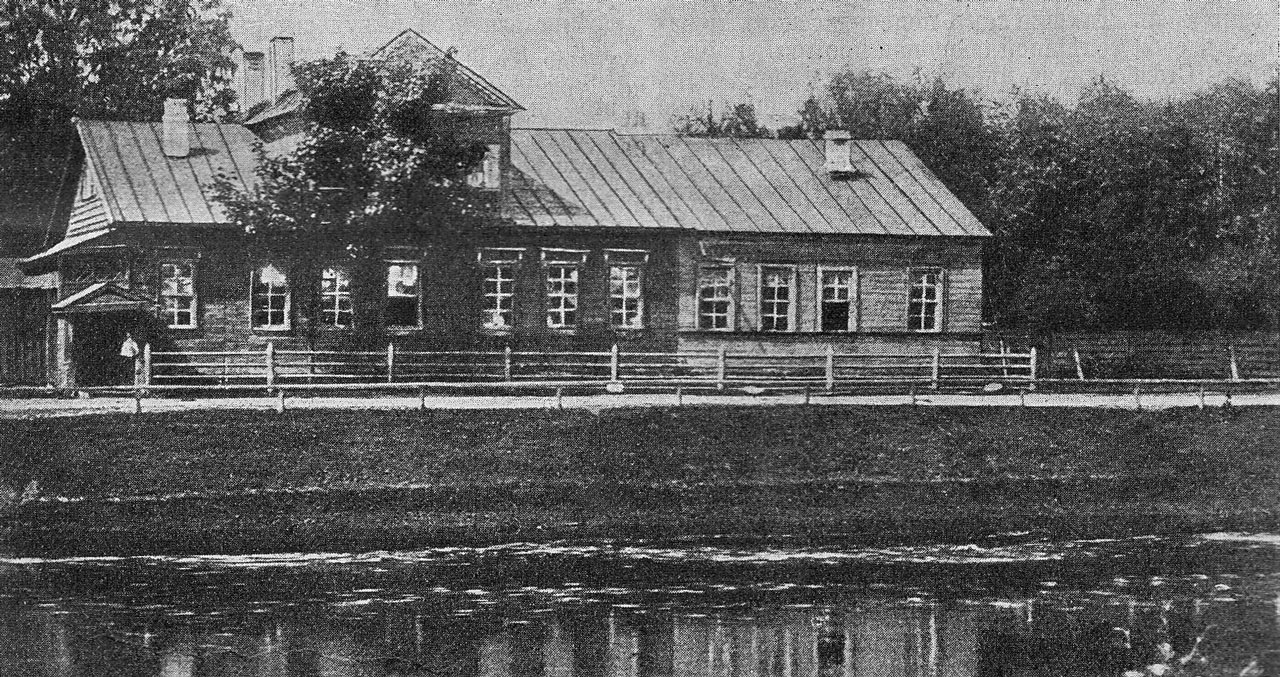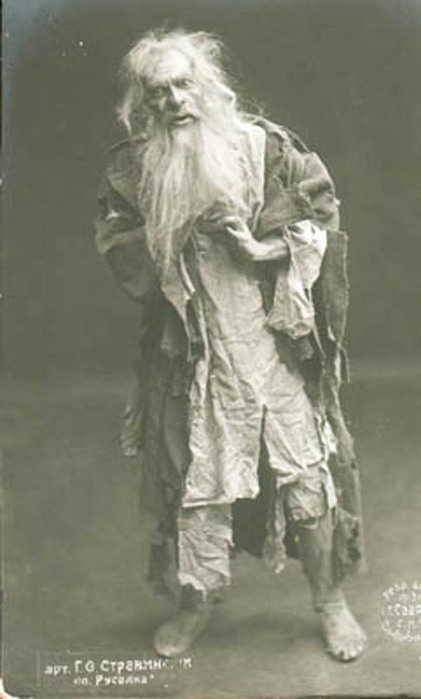|
The Rite Of Spring
''The Rite of Spring'' () is a ballet and orchestral concert work by the Russian composer Igor Stravinsky. It was written for the 1913 Paris season of Sergei Diaghilev's Ballets Russes company; the original choreography was by Vaslav Nijinsky with stage designs and costumes by Nicholas Roerich. When first performed at the Théâtre des Champs-Élysées on 29 May 1913, the avant-garde nature of the music and choreography List of classical music concerts with an unruly audience response, caused a sensation. Many have called the first-night reaction a "riot" or "near-riot", though this wording did not come about until reviews of later performances in 1924, over a decade later. Although designed as a work for the stage, with specific passages accompanying characters and action, the music achieved equal if not greater recognition as a concert piece and is widely considered to be one of the most influential musical works of the 20th century. Stravinsky was a young, virtually unknown ... [...More Info...] [...Related Items...] OR: [Wikipedia] [Google] [Baidu] |
Sergei Diaghilev
Sergei Pavlovich Diaghilev ( ; rus, Серге́й Па́влович Дя́гилев, , sʲɪrˈɡʲej ˈpavləvʲɪdʑ ˈdʲæɡʲɪlʲɪf; 19 August 1929), also known as Serge Diaghilev, was a Russian art critic, patron, ballet impresario and founder of the Ballets Russes, from which many famous dancers and choreographers would arise. Diaghilev's career can be divided into two periods: in Saint Petersburg (1898–1906) and while as an emigrant (1906–1929). Biography Sergei Diaghilev was born in Selishchi to a noble officer . His mother died from childbed fever soon after his birth. In 1873, Pavel met and married Elena Panaeva, who loved Sergei and raised him as her own child. The in Perm was a local cultural centre, and the Diaghilevs hosted a musical evening every second Thursday, Modest Mussorgsky being one of the most frequent guests. Sergei Diaghilev composed his first romance at the age of 15. When he entered the Saint Petersburg Imperial University, he ... [...More Info...] [...Related Items...] OR: [Wikipedia] [Google] [Baidu] |
Accent (music)
In music, an accent is an emphasis, stress, or stronger attack placed on a particular note or set of notes, or chord, either because of its context or specifically indicated by an accent mark. Accents contribute to the articulation and prosody of a performance of a musical phrase. Accents may be written into a score or part by a composer, or added by the performer as part of their interpretation of a musical piece. Compared to surrounding notes: * A dynamic accent or stress accent is an emphasis using louder sound or stronger sound; typically, most pronounced on the attack of the sound. * A tonic accent is an emphasis on notes by virtue of them being higher in pitch, as opposed to higher in volume. * An agogic accent is an emphasis by virtue of notes being longer in duration. Accents that don't correspond to the stressed beats of the prevailing meter are said to be syncopated. For example, in common time, also called 4/4, the most common metre in popular music, the stresse ... [...More Info...] [...Related Items...] OR: [Wikipedia] [Google] [Baidu] |
Symphony In E-flat (Stravinsky)
The Symphony in E-flat, Op. 1, is the first published work composed by Igor Stravinsky during his apprenticeship with Nikolai Rimsky-Korsakov. It is also his first composition for orchestra. Of classical structure, it is broadly influenced by Rimsky-Korsakov, Glazunov, Tchaikovsky and Wagner. It was composed in 1905–1907 and revised in 1913. It lasts for about forty minutes. History The score bears the dedication "To my dear teacher N. A. Rimsky-Korsakov". A private performance was given on 27 April 1907 by the St. Petersburg Court Orchestra conducted by H. Wahrlich, in a concert that also included the first performance of ''Faun and Shepherdess''. Stravinsky later recalled that both Rimsky-Korsakov and Glazunov considered the orchestration "too heavy". The first public performance was conducted by Felix Blumenfeld on 22 January 1908. A revised version was conducted by Ernest Ansermet on 2 April 1914, and the composer conducted this version in his later performances. Instrum ... [...More Info...] [...Related Items...] OR: [Wikipedia] [Google] [Baidu] |
Piano Sonata In F-sharp Minor (Stravinsky)
The Piano Sonata in F-sharp minor is an early composition by Russian composer Igor Stravinsky. It was composed between 1903 and 1904 and is dedicated to Nicolas Richter. Composition This piano sonata was kept in his portfolio together with his Scherzo in G minor for piano, a fairly short composition, when he was consulting his teacher Nikolai Rimsky-Korsakov about his ambition to be a composer. It was eventually composed partly in Saint Petersburg and partly in Pavlovka, in Samara. Both the sonata and the scherzo were dedicated to fellow pianist and contemporary Nicolas Richter, who played it in private to Rimsky-Korsakov in 1905 and subsequently gave a performance in public as a premiere the same year. Prior to his death, it was thought all Stravinsky's compositions prior to the Symphony in E-flat had been lost when he left Russia in 1914, with the exception of ''The Mushrooms Going to War'', the manuscript of which remained with him until his death. Stravinsky even referr ... [...More Info...] [...Related Items...] OR: [Wikipedia] [Google] [Baidu] |
Counterpoint
In music theory, counterpoint is the relationship of two or more simultaneous musical lines (also called voices) that are harmonically dependent on each other, yet independent in rhythm and melodic contour. The term originates from the Latin ''punctus contra punctum'' meaning "point against point", i.e. "note against note". John Rahn describes counterpoint as follows: Counterpoint has been most commonly identified in the European classical tradition, strongly developing during the Renaissance and in much of the common practice period, especially in the Baroque period. In Western pedagogy, counterpoint is taught through a system of species (see below). There are several different forms of counterpoint, including imitative counterpoint and free counterpoint. Imitative counterpoint involves the repetition of a main melodic idea across different vocal parts, with or without variation. Compositions written in free counterpoint often incorporate non-traditional harmonies and c ... [...More Info...] [...Related Items...] OR: [Wikipedia] [Google] [Baidu] |
Saint Petersburg State University
Saint Petersburg State University (SPBGU; ) is a public research university in Saint Petersburg, Russia, and one of the oldest and most prestigious universities in Russia. Founded in 1724 by a decree of Peter the Great, the university from the beginning has had a focus on fundamental research in science, engineering and humanities. During the Soviet period, it was known as Leningrad State University (). It was renamed after Andrei Zhdanov in 1948 and was officially called "Leningrad State University, named after A. A. Zhdanov and decorated with the Order of Lenin and the Order of the Red Banner of Labour." Zhdanov's was removed in 1989 and Leningrad in the name was officially replaced with Saint Petersburg in 1992. It is made up of 24 specialized faculties (departments) and institutes, the Academic Gymnasium, the Medical College, the College of Physical Culture and Sports, Economics and Technology. The university has two primary campuses: one on Vasilievsky Island and the ot ... [...More Info...] [...Related Items...] OR: [Wikipedia] [Google] [Baidu] |
Modest Mussorgsky
Modest Petrovich Mussorgsky (; ; ; – ) was a Russian composer, one of the group known as "The Five (composers), The Five." He was an innovator of Music of Russia, Russian music in the Romantic music, Romantic period and strove to achieve a uniquely Russian musical identity, often in deliberate defiance of the established conventions of Western music. Many of List of compositions by Modest Mussorgsky, Mussorgsky's works were inspired by Russian history, Russian folklore, and other national themes. Such works include the opera ''Boris Godunov (opera), Boris Godunov'', the orchestral tone poem ''Night on Bald Mountain'' and the piano suite ''Pictures at an Exhibition''. For many years, Mussorgsky's works were mainly known in versions revised or completed by other composers. Many of his most important compositions have posthumously come into their own in their original forms, and some of the original scores are now also available. Name The spelling and pronunciation of the c ... [...More Info...] [...Related Items...] OR: [Wikipedia] [Google] [Baidu] |
Alexander Borodin
Alexander Porfiryevich Borodin (12 November 183327 February 1887) was a Russian Romantic composer and chemist of Georgian–Russian parentage. He was one of the prominent 19th-century composers known as " The Five", a group dedicated to producing a "uniquely Russian" kind of classical music. Abraham, Gerald. ''Borodin: the Composer and his Music''. London, 1927. Borodin is known best for his symphonies, his two string quartets, the symphonic poem '' In the Steppes of Central Asia'' and his opera '' Prince Igor''. A doctor and chemist by profession and training, Borodin made important early contributions to organic chemistry. Although he is presently known better as a composer, he regarded medicine and science as his primary occupations, only practising music and composition in his spare time or when he was ill. As a chemist, Borodin is known best for his work concerning organic synthesis, including being among the first chemists to demonstrate nucleophilic substitution, as w ... [...More Info...] [...Related Items...] OR: [Wikipedia] [Google] [Baidu] |
Nikolai Rimsky-Korsakov
Nikolai Andreyevich Rimsky-Korsakov. At the time, his name was spelled , which he romanized as Nicolas Rimsky-Korsakow; the BGN/PCGN transliteration of Russian is used for his name here; ALA-LC system: , ISO 9 system: .. (18 March 1844 – 21 June 1908) was a Russian composer, a member of the group of composers known as The Five. He was a master of orchestration. His best-known orchestral compositions—'' Capriccio Espagnol'', the '' Russian Easter Festival Overture'', and the symphonic suite '' Scheherazade''—are staples of the classical music repertoire, along with suites and excerpts from some of his fifteen operas. ''Scheherazade'' is an example of his frequent use of fairy-tale and folk subjects. Rimsky-Korsakov believed in developing a nationalistic style of classical music, as did his fellow composer Mily Balakirev and the critic Vladimir Stasov. This style employed Russian folk song and lore along with exotic harmonic, melodic and rhythmic elements in a ... [...More Info...] [...Related Items...] OR: [Wikipedia] [Google] [Baidu] |
Mariinsky Theatre
The Mariinsky Theatre (, also transcribed as Maryinsky or Mariyinsky) is a historic opera house in Saint Petersburg, Russia. Opened in 1860, it became the preeminent music theatre of late 19th-century Russia, where many of the stage masterpieces of Tchaikovsky, Mussorgsky, and Rimsky-Korsakov received their premieres. Through most of the Soviet era, it was known as the Kirov Theatre. Today, the Mariinsky Theatre is home to the Mariinsky Ballet, Mariinsky Opera and Mariinsky Theatre Orchestra, Mariinsky Orchestra. Since Yuri Temirkanov's retirement in 1988, the conductor Valery Gergiev has served as the theatre's general director. Name The theatre is named after Maria Alexandrovna (Marie of Hesse), Empress Maria Alexandrovna, wife of Alexander II of Russia, Tsar Alexander II. There is a bust of the Empress in the main entrance foyer. The theatre's name has changed throughout its history, reflecting the political climate of the time: * 1860 – 1920: Imperial Mariinsky Theatre () ... [...More Info...] [...Related Items...] OR: [Wikipedia] [Google] [Baidu] |
Bass (voice Type)
A bass is a type of classical male singing voice and has the lowest vocal range of all voice types. According to '' The New Grove Dictionary of Opera'', a bass is typically classified as having a vocal range extending from around the second E below middle C to the E above middle C (i.e., E2–E4). Its tessitura, or comfortable range, is normally defined by the outermost lines of the bass clef. Categories of bass voices vary according to national style and classification system. Italians favour subdividing basses into the ''basso cantante'' (singing bass), ''basso buffo'' (comical bass), or the dramatic ''basso profondo'' (deep bass). The American system identifies the bass-baritone, comic bass, lyric bass, and dramatic bass. The German '' Fach'' system offers further distinctions: Spielbass (Bassbuffo), Schwerer Spielbass (Schwerer Bassbuffo), Charakterbass (Bassbariton), and Seriöser Bass. These classifications tend to describe roles rather than singers: it is rare for ... [...More Info...] [...Related Items...] OR: [Wikipedia] [Google] [Baidu] |
Fyodor Stravinsky
Fyodor Ignatyevich Stravinsky () (, estate Novy Dvor (Aleksichi), Rechitsky Uyezd, Minsk Governorate ) was a Russian bass opera singer and actor. He was the father of Igor Stravinsky and the grandfather of Théodore Strawinsky and Soulima Stravinsky. Life and career His father Ignacy was a Catholic and came from a noble Polish family of Sulima- Strawiński; his mother, Alexandra Ivanovna Skorokhodova, was a daughter of a Russian small landowner. Fyodor was baptised in accordance with the Orthodox rite due to Imperial Law which stated that children born of mixed Catholic–Orthodox marriages had to be brought up in the Russian Orthodox faith.Igor Stravinsky, Robert Craft, Memories and Commentaries', University of California Press, 1981, p. 17 In 1869 he completed his education at the Nezhin Lyceum, where he sang in the church choir. He studied voice at the Saint Petersburg Conservatory from 1869 to 1873. He later studied with Camille Everardi in Kiev. Stravinsky started ... [...More Info...] [...Related Items...] OR: [Wikipedia] [Google] [Baidu] |








